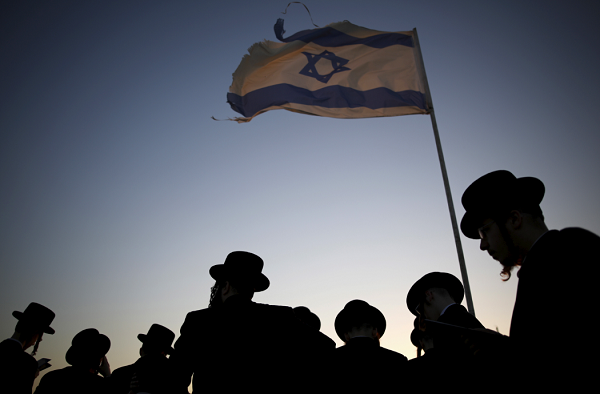When Is Yom Kippur? 10 Facts About The 2016 Jewish Day Of Atonement

This year, Yom Kippur starts on Oct. 11 and ends the next day on Oct. 12. The Jewish holiday is a time of fasting, reflection, prayer and repentance for the previous year and the year ahead during the High Holidays, which also includes Rosh Hashanah. Yom Kippur is considered the most sacred and holiest day on the Jewish calendar. In fact, many Jews who don’t necessarily follow strict Jewish traditions or observe other regular Jewish practices still recognize Yom Kippur and follow the fasting custom on that day. Read on below for a few interesting fact about Yom Kippur.
1. The holiday starts at sundown and ends until dark the following day.
2. Yom Kippur was established as a day of atonement and repentance based on a passage in the Torah when the Jewish people were instructed to practice “self-denial” during the “sacred occasion.” Fasting serves as an opportunity for followers to concentrate on their spiritual walk and focus on ways to improve from their past sins.
3. Days of Repentance is observed over the next 10 days following Yom Kippur.
4. Jews fast for a full 26 hours during Yom Kippur. During the fast, everyone except pregnant women and children will refrain from eating, washing or bathing, using cosmetics or deodorant, or wearing leather shoes.
5. Work is not allowed during the hours of Yom Kippur.
6. Sexual relations of any kind are also not allowed.
7. Since the holiday is recognized as a spiritual cleansing, most Jews wear white on Yom Kippur as a symbol of purity.
8. Most Jews observe the holiday by spending the majority of it in the synagogues. Many synagogues will hold special services and Torah readings throughout the day. The holiday typically ends with a single blast of the shofar, which is an ancient musical horn used for Jewish religious purposes.
9. Jews chant Kol Nidre, meaning “all vows,” solely on Yom Kippur.
10. Yom Kippur is a family affair, during which time many families will host a big feast called se’udah mafseket before the sun goes down on the first day followed by a candle lighting at the end of the meal. Once the fast is over, many families dine with relatives and friends.
© Copyright IBTimes 2025. All rights reserved.






















